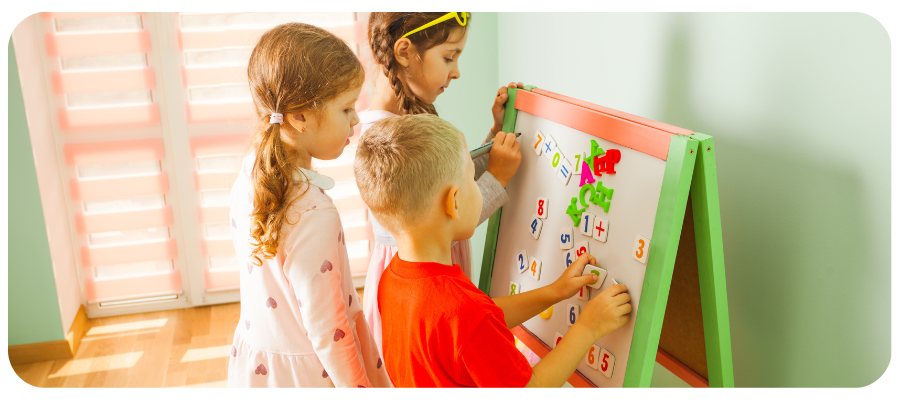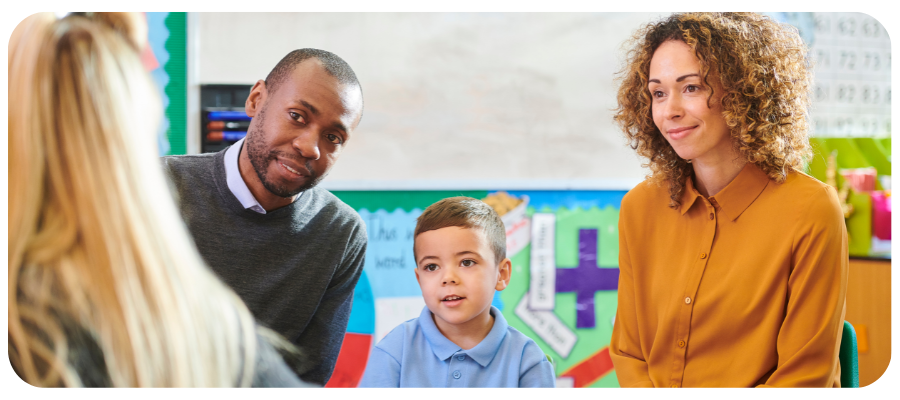Unlocking Potential: Utilizing Assessments to Support Individualized Learning Plans in Early Childhood Education Programs

In the dynamic landscape of early childhood education, fostering individualized learning experiences has become a cornerstone for ensuring the holistic development of young minds. Recognizing and catering to the unique needs of each child is essential in laying the foundation for a lifetime of learning success. One powerful tool that educators can employ to achieve this is assessments. In this blog, we'll explore the significance of assessments in early childhood education and how they can be harnessed to create effective individualized learning plans.
Understanding the Role of Assessments in Early Childhood Education
Assessments in early childhood education are not merely about grading or testing a child's knowledge. Instead, they serve as valuable tools for gauging a child's progress, identifying strengths and areas for improvement, and tailoring educational strategies to meet individual needs.
Formative vs. Summative Assessments:
- Formative assessments are ongoing, interactive assessments that provide immediate feedback to teachers, helping them adjust their teaching methods in real time. These assessments focus not on assigning grades but on understanding the learning process.
- Summative assessments are typically conducted at the end of a specific learning period to evaluate a child's progress. Examples include standardized tests or end-of-year projects. These assessments provide a snapshot of a child's understanding of the material.
Observational Assessments:
- The power of keen observation cannot be overstated in early childhood education. Observational assessments involve watching and documenting a child's behavior, interactions, and engagement during various activities. This qualitative data provides valuable insights into a child's learning style, social interactions, and problem-solving skills.
- Summative assessments Teachers can utilize anecdotal records and checklists to systematically document and assess various aspects of a child's development, including cognitive, social, and emotional milestones.

Building Individualized Learning Plans
Once assessments have been conducted, the next crucial step is using the gathered information to create individualized learning plans that cater to each child's unique strengths, interests, and challenges.
Identifying Learning Styles:
- Assessments help educators identify a child's preferred learning style, whether visual, auditory, or kinesthetic. Understanding these preferences allows teachers to tailor instructional approaches to better align with how each child learns best.
- For visual learners, incorporating visual aids and diagrams into lessons may enhance comprehension, while auditory learners may benefit from discussions and oral presentations. Kinesthetic learners may thrive through hands-on activities and movement-based tasks.
Setting Goals:
- Assessment data is a foundation for setting developmentally appropriate goals for each child. These goals should be specific, measurable, achievable, relevant, and time-bound (SMART).
- Teachers can collaboratively establish goals with parents and caregivers, ensuring that the objectives align with the child's current developmental stage and take into account individual strengths and areas for improvement.
Differentiation Strategies:
- Differentiated instruction is a key component of individualized learning plans, acknowledging that children in the same classroom may have varying skill levels and learning needs. Assessments aid in identifying these differences.
- Teachers can implement differentiated instructional strategies, such as tiered assignments, flexible grouping, and varied assessment formats, to address the diverse needs of their students. This approach fosters inclusive learning environments where every child has the opportunity to succeed.
Integrating Technology for Enhanced Assestment
In the digital age, technology offers innovative solutions for more accurate and efficient assessments, enabling educators to delve deeper into a child's cognitive and emotional development.
Digital Portfolios:
- Digital portfolios serve as extensive compilations showcasing a child's accomplishments, reflections, and work in a digital format. These portfolios offer a more comprehensive perspective on a child's development and growth than conventional paper-based assessments. Parents can easily access and engage with these significant milestones through user-friendly online platforms like ChildPilot's parent portal app, which includes features for recording, tracking, and sharing assessments.
- Including samples of work, photos, videos, and written reflections, digital portfolios offer a dynamic way to showcase a child's growth and development. They can also involve parents in the assessment process, fostering collaboration between home and school.
Interactive and Learning Apps:
- Educational apps can be valuable tools for formative assessment, allowing teachers to track a child's engagement, comprehension, and skill development in real time. These apps often incorporate interactive elements, providing a more engaging and personalized learning experience.
- Teachers can leverage data from these apps to identify trends, assess learning gaps, and tailor their instructional approaches accordingly. However, balancing screen time and other hands-on learning experiences is essential.

Overcoming Challenges and Ensuring Equity
While assessments are potent tools, challenges such as cultural differences, language barriers, and socioeconomic factors can impact their effectiveness. Addressing these challenges is crucial to ensuring equitable access to individualized learning plans for all children.
Cultural Sensitivity:
- Cultural sensitivity in assessments involves recognizing and respecting students' diverse cultural backgrounds. Assessments should be designed to be culturally responsive, avoiding biases and ensuring that the content is relevant and inclusive.
- Teachers can collaborate with parents and community members to gain insights into cultural nuances, ensuring that assessments are fair and do not disadvantage any particular group of students.
Parent Involvement:
- Actively involving parents in the assessment process is vital for creating a complete picture of a child's abilities and needs. Parents are valuable educational partners, possessing unique insights into a child's behavior, interests, and learning preferences.
- Regular communication, such as parent-teacher conferences, allows educators to share assessment findings, discuss progress, and collaboratively set goals. This partnership enhances the effectiveness of individualized learning plans, as parents can reinforce and extend the child's learning experiences at home.
In early childhood education, assessments guide educators toward individualized learning plans that unlock the full potential of every child. By embracing the diverse needs of young learners and leveraging assessment tools thoughtfully, educators can pave the way for a future where education is truly personalized, ensuring that each child's journey is unique and optimized for success. Integrating technology, cultural sensitivity, and active parental involvement further enhances the effectiveness of assessments, fostering a holistic and equitable approach to early childhood education.
532